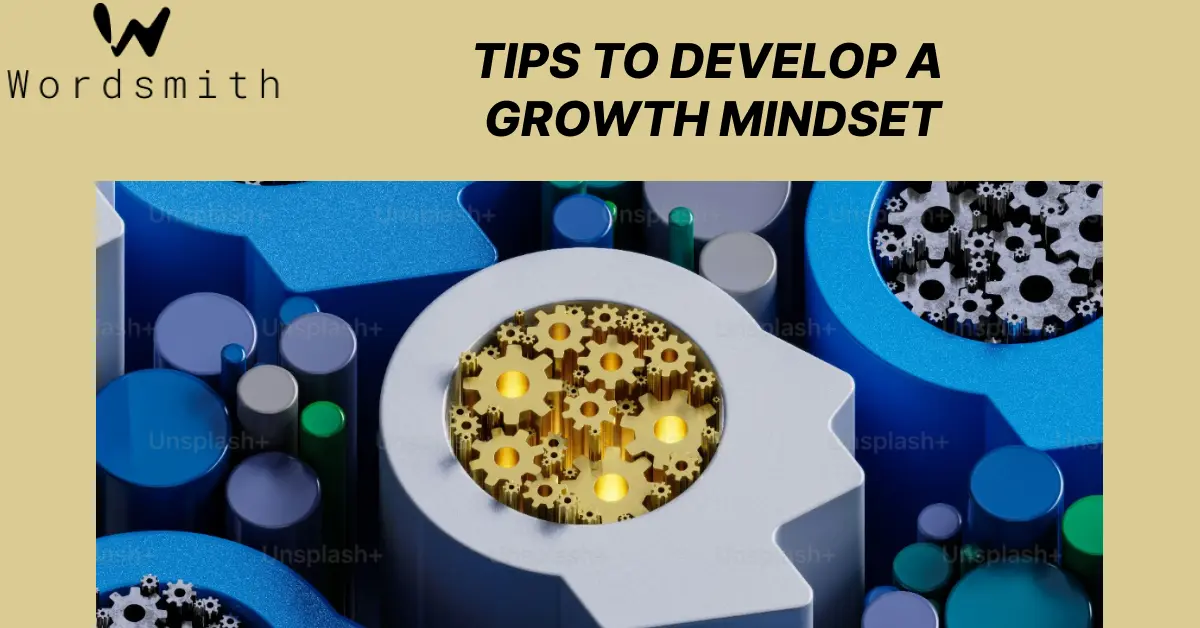Tips for Having a Growth Mindset
Jaishree D | 28-02-2024 | 02 min read

A growth mindset: what is it?
The idea that you can improve your abilities and capabilities with effort, the appropriate techniques, and advice from others is known as a growth mindset.
1. Give it your all
Believing in yourself is the first step towards implementing a development mindset in your classroom. Consider your own attitudes toward learning for a while. Do you shun or detest certain topics or pastimes because you're not "good" at them? The idea that it is useless to put out effort in the future if you do not succeed at something right away can be readily fostered by a fixed mindset.
2. Promote effort over cunning
Who doesn't like to hear that they're intelligent? It's a wonderful sensation that everyone ought to have. While it's vital to encourage pupils, praising them merely for their intelligence might not be helpful in the long term. When your students achieve anything, rather of telling them "you're smart," acknowledge their method and their advancement.
3. See failure as an opportunity
Students can fail for a variety of reasons at times. It's an inevitable and frustrating aspect of life and learning. Anxiety can arise from failure and mistakes, particularly when they take place in a setting where an undesirable outcome—such as a poor grade, embarrassment, or even punishment—could occur. Students who experience fear of failing may be unable to venture beyond their comfort zones, shun challenges, or become withdrawn in the face of difficulties. But failure, when managed well, can present many opportunities.
4. Remember the importance of formative evaluation
A growth attitude can be effectively promoted in your classroom with the use of formative assessment. Formative assessment tasks are intended to be brief, low-stress evaluations of comprehension. They not only assist you in monitoring students' progress and making any modifications, but they also motivate students to be honest about their difficulties and ask for assistance when necessary. Journaling, exit tickets, and other innovative formative assessment strategies are excellent methods toCreate a feedback loop in your classroom to encourage ongoing development.
5. Foster an interest in learning and inquiry
Curiosity and a need for information are essential components of a growth mentality. You can remove your ego from the learning process and freely integrate new knowledge and modify your approach by cultivating a passion of learning and accepting new experiences.
6.Seek feedback from others
Actively seeking feedback from others and being open to constructive criticism is a great way to accelerate personal growth.
Conclusion:
Adopting a growth mindset requires more than just encouraging pupils to do well academically. It is not a panacea. Instead, growth mindset encourages people to welcome obstacles and learn from failures by recognizing and applauding advancement and the learning process rather than merely work. Encouraging pupils to have a growth attitude can help them succeed in addition to assistance.
Popular blogs

Importance Of Hashtags
As it happens, hashtags have evolved for use in the twenty-first century. Hashtags can now be used to tag mater...

Benefits of Meditation and Mindfulness
Meditation and mindfulness become transforming threads in the busy tapestry of contemporary life, creating a di...

Digital Detox - Reconnecting with the outside world
A digital detox is the act of choosing to put down our electronic devices for a while. These might include soci...
Submit a Comment